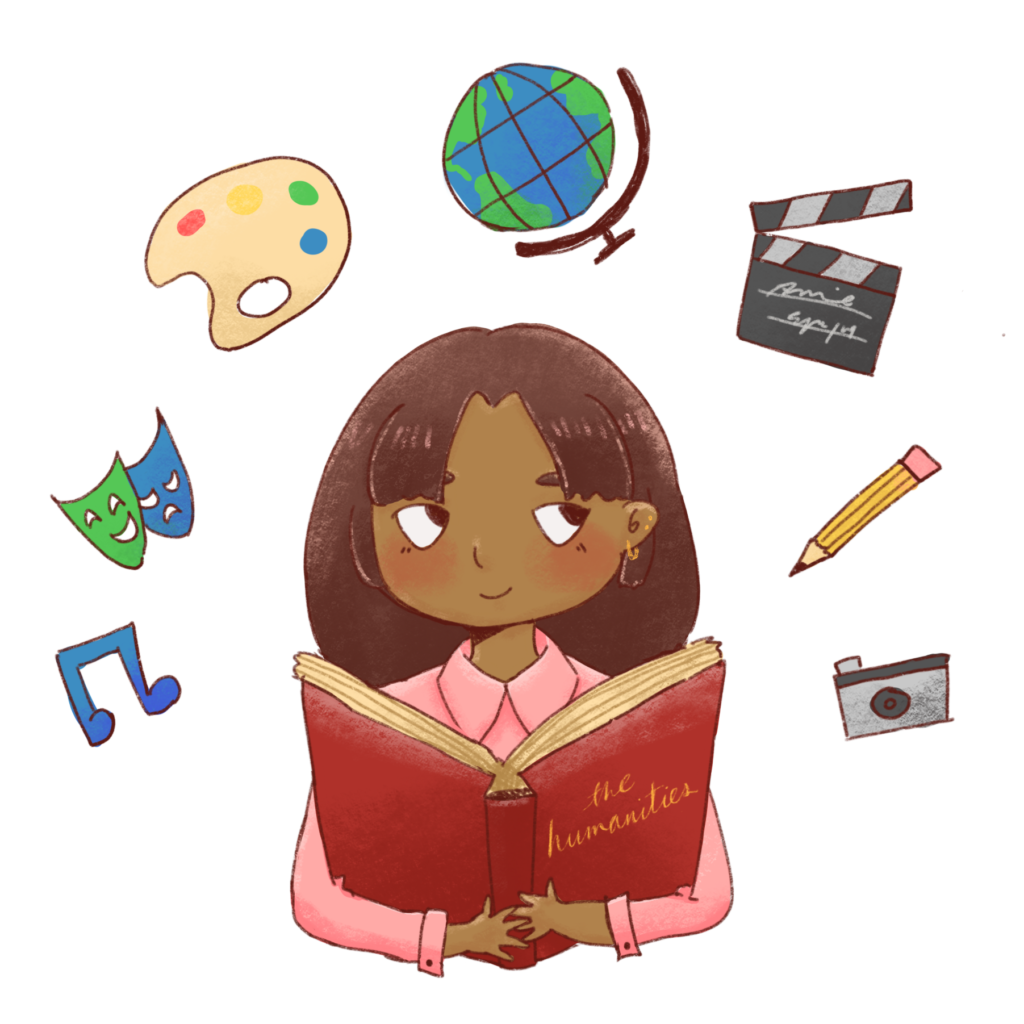Sci-fi books have captured the imagination of readers for generations, offering exhilarating glimpses into possible futures and technological advancements. From the chilling tales of AI and humanity to dystopian visions that challenge our perceptions of freedom, the best sci-fi books expand our understanding of what it means to be human in an increasingly digital world. Whether you’re seeking sci-fi recommendations for a cozy evening or pondering the implications of robots and consciousness, these science fiction novels prompt critical conversations about ethics and innovation. As we delve into the realm of AI and humanity books, we discover both a reflection of our current society and a blueprint for what may lie ahead. Engage with these imaginative stories and prepare to embolden your thoughts about technology’s role in our lives.
The landscape of speculative literature, often referred to as science fiction, transcends mere storytelling; it serves as both a mirror and a warning for our evolving relationship with technology. Works within this genre explore essential themes related to artificial intelligence, the essence of consciousness, and the moral dilemmas posed by emerging technologies. Recommended titles in this sphere not only entertain but also stimulate vital discussions about futurism, ethical responsibilities, and the human experience itself. As narratives unfold in vivid worlds, readers encounter dilemmas faced by characters that echo our own societal challenges, inviting us to reflect on the implications of our choices as we navigate a future intertwined with advanced technologies. Through the lens of fantastic tales, speculative fiction expands our horizons and amplifies our awareness of the complexities around us.
Diving into the Best Sci-Fi Books for AI Enthusiasts
When it comes to exploring the intricate relationship between artificial intelligence and humanity, the best sci-fi books often provide profound insights and thought-provoking scenarios. Titles such as ‘Blindsight’ by Peter Watts challenge our perception of consciousness, urging readers to reflect on the nature of intelligence itself. These narratives frequently dive deep into the ethical dilemmas of creating machines that mimic human behaviors, exposing the vulnerabilities and potentials that come with advancements in technology.
Furthermore, classics like ‘Fahrenheit 451’ serve as critical commentaries on censorship and the consumption of knowledge in the age of AI. Such works emphasize that in a world increasingly influenced by algorithm-driven choices, critical thinking and intellectual freedom become paramount. Readers are called to not only enjoy these gripping stories but to engage with the underlying messages about our future with AI.
Science Fiction Novels That Challenge Our Understanding of Humanity
Science fiction novels have a unique capability to challenge our understanding of what it means to be human. For instance, ‘Solaris’ by Stanislaw Lem doesn’t just depict aliens; it confronts the limits of human knowledge and emotional connections. As the protagonists grapple with an intelligence they cannot fully comprehend, readers are invited to reflect on their own perceptions of reality and the essence of human experience.
Similarly, works like ‘A Rover’s Story’ highlight the emotional intricacies of human-robot interactions. This novel illustrates how machines can evoke feelings of companionship and loss, prompting necessary discussions about our relationship with technology. Such narratives beckon readers to reconsider the boundaries between humanity and artificial life, making them essential reads for those who are curious about the future of AI and human relationships.
Censorship in Sci-Fi: A Reflection of Modern Society
Censorship is a recurring theme in many science fiction novels, reflecting contemporary issues we face in society. ‘Exorcism’ by Han Song illustrates how oppressive regimes can stifle creativity and the dissemination of ideas. Through its complex portrayal of a world where characters are subjected to strict controls, the novel provides a commentary on the impact of censorship on intellectual freedom and the human spirit.
In a similar vein, Bradbury’s ‘Fahrenheit 451’ serves as a stark warning against the dangers of losing access to literature and critical thought. It urges readers to consider the ways in which information can be manipulated and controlled, echoing modern concerns about technology’s role in shaping our understanding of truth. Such narratives remind us that vigilance is necessary to preserve our freedoms in the face of advancing technologies.
Exploring AI and Humanity Books for Younger Audiences
While many adult sci-fi novels tackle complex themes, there are also compelling AI and humanity books aimed at younger readers. ‘A Rover’s Story,’ for instance, engages its audience with a tale of a Mars rover learning about emotions and friendship through his interactions with humans. This middle-grade novel serves as an excellent entry point for young readers to reflect on what it means to connect with technology and the importance of human relationships.
These stories encourage children to think critically about their interactions with machines and promote discussions about empathy and emotional intelligence. By introducing such themes in an accessible manner, these books play a crucial role in preparing the next generation to navigate an increasingly tech-driven world.
The Role of AI in Shaping Future Literature
As technology evolves, so too does the landscape of literature, particularly in the realm of science fiction. The emergence of AI systems is reshaping not just the themes explored in novels, but the very act of writing itself. AI can assist authors in generating ideas or even drafting narratives, raising questions about authorship and creativity in literature. As we welcome a future where human and machine collaboration becomes commonplace, it’s vital to reflect on how these innovations influence storytelling.
The best sci-fi books often highlight these dynamics, exploring the implications of AI on creativity and artistic expression. Titles that delve into this subject invite readers to ponder the future of literature in a world where machines are capable of producing narratives that could rival those crafted by human hands. This intersection of technology and creativity promises to be a rich vein for future literary exploration.
Cautionary Tales of Technology in Science Fiction
Cautionary tales are a hallmark of science fiction, warning us about the potential perils of unchecked technological advancement. Novels like ‘Fahrenheit 451’ not only depict a world that has succumbed to the dangers of censorship but also illustrate the broader implications of allowing technology to dictate our cultural values and intellectual landscape. Bradbury’s narrative serves as a reminder that literature and critical thought are vital in fostering informed citizens.
Additionally, ‘Blindsight’ offers a chilling perspective on the nature of intelligence and consciousness, encouraging readers to think critically about the potential consequences of creating entities that may surpass human capabilities. Such stories urge us to examine the ethical dimensions of our technological pursuits, reminding us of the delicate balance we must maintain as we forge ahead into an uncertain future.
Sci-Fi Recommendations: Travels into Otherworldly Realms
Sci-fi books are renowned for their ability to transport readers into realms far beyond our own, fostering imagination and curiosity. Novels such as ‘Solaris’ not only take us to alien planets but also delve into the psychological aspects of exploration and the unknown. The journeys these stories embark upon forge a connection between the reader and the vast possibilities that lie within the universe.
Through encounters with alien intelligence and exploration of new worlds, these narratives encourage readers to think critically about our place in the cosmos. They challenge us to confront the unknown and embrace the curiosity that drives scientific discovery. Engaging with such sci-fi recommendations allows readers to explore fundamental questions about existence, identity, and the essence of being.
The Intersection of AI and Ethics in Literature
The exploration of AI in literature often brings ethical considerations to the forefront, prompting readers to engage with crucial questions surrounding morality, responsibility, and the implications of advancements in technology. Books like ‘Blindsight’ confront readers with the unsettling possibility that consciousness may not be a prerequisite for intelligence, challenging our moral frameworks concerning AI and machine autonomy.
In addition, ‘Exorcism’ illustrates the dilemmas faced by characters in a technologically advanced society, forcing them to question the ethics of their AI-driven world. Engaging with narratives that intertwine AI and ethics prepares readers to navigate the complexities of the real world, equipping them with the critical skills needed to approach future challenges in technology.
Future Trends in Sci-Fi Literature: Innovation Meets Imagination
As we look ahead, the landscape of sci-fi literature continues to evolve, driven by rapid technological advancement and societal shifts. The rise of AI writers alongside human authors may present new opportunities for collaboration, resulting in innovative storytelling that pushes the boundaries of the genre. Readers can expect a rich tapestry of voices and perspectives as more diverse authors enter the sci-fi realm, expanding the narratives we see around AI and humanity.
Furthermore, trends such as interactive storytelling and immersive experiences through virtual reality are changing how we engage with literature. These advancements not only redefine the reading experience but also challenge traditional notions of narrative structure and authorial intent. As sci-fi books adapt to these new formats, readers will find themselves more deeply entwined in the narratives, facilitating a greater understanding of the themes explored within.
Frequently Asked Questions
What are the best sci-fi books that explore AI and humanity?
Some of the best sci-fi books that delve into the relationship between AI and humanity include Peter Watts’ ‘Blindsight,’ which questions the essence of consciousness, and Ray Bradbury’s classic ‘Fahrenheit 451,’ which addresses the impact of technology on intellectual freedom. These novels provide critical insights into how AI could reshape our understanding of what it means to be human.
Can you recommend sci-fi books about AI that challenge societal norms?
Certainly! ‘Exorcism’ by Han Song is a powerful sci-fi novel that critiques societal structures through the lens of a futuristic hospital governed by AI. Additionally, ‘Fahrenheit 451’ by Ray Bradbury portrays a society where censorship and AI contribute to a decline in critical thought. Both novels encourage readers to question the status quo.
What are some top science fiction novels for newcomers to the genre?
For those new to sci-fi, ‘Solaris’ by Stanislaw Lem offers a profound exploration of communication beyond human understanding, while ‘A Rover’s Story’ by Jasmine Warga introduces young readers to themes of friendship and emotion through the eyes of a Mars rover. These books are excellent gateways into the rich world of science fiction.
Why should I read sci-fi books about AI and humanity?
Reading sci-fi books about AI and humanity helps us explore the ethical implications and potential future scenarios of our technological advances. Works like ‘Blindsight’ and ‘Exorcism’ provoke thought about consciousness and societal control, making them not only entertaining but also essential for understanding our world.
What are some recommended sci-fi books that critique current technology trends?
In addition to ‘Fahrenheit 451’ which warns against the dangers of censorship and distraction, ‘Exorcism’ by Han Song serves as a critique of modern technology’s role in shaping reality. These novels encourage readers to reflect on how emerging technologies affect our lives and society at large.
| Title | Author | Key Themes |
|---|---|---|
| Blindsight | Peter Watts | Explores AI’s implications on humanity and the nature of consciousness. |
| Solaris | Stanislaw Lem | Investigates intelligence and human encounters with the unknown. |
| A Rover’s Story | Jasmine Warga | Discusses the emotional connections between humans and AI. |
| Exorcism | Han Song | Engages with themes of censorship, reality, and the human narrative. |
| Fahrenheit 451 | Ray Bradbury | A cautionary tale about censorship and the consequences of distraction. |
Summary
Sci-fi books often serve as vital reflections on contemporary issues, enabling readers to explore complex themes related to technology and society. In the realm of speculative fiction, works like ‘Blindsight’ and ‘Fahrenheit 451’ challenge our perceptions of AI and censorship, prompting critical discussions about our future. These narratives not only entertain but also illuminate the risks and joys of our advancing world, making sci-fi literature a crucial avenue for understanding the implications of our choices today.



